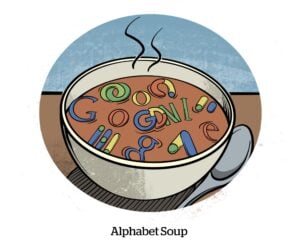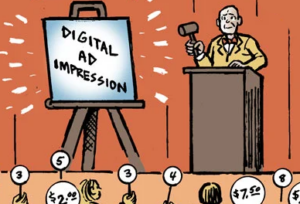Here’s today’s AdExchanger.com news round-up… Want it by email? Sign up here.
Open-Sourcery
Is there a secret society of socialists within programmatic?
Probably not. But there’s apparently support among ad tech leaders for advertising marketplace and auction services to be open source, or operated by the government or nonbusiness entities.
On Day Two of the Google antitrust trial, open-source solutions were surprisingly championed by two DOJ expert witnesses – Stephanie Layser, formerly News Corp’s ad tech leader, now an AWS publisher liaison, and Eisar Lipkovitz, Google’s former VP of engineering.
In an aside prompted by Google’s attorney questioning Layser about a column she wrote for AdExchanger in 2019, Layser clarified that she felt AdX should be open-sourced as a “community asset,” not that Google should simply gift AdX to the open-source Prebid.org. But all ad servers might operate on the same protocols, more like the OpenRTB standard overseen by the IAB.
Lipkovitz said his personal preference would be for DFP, Google’s ad server, to be a public good. “Run by the US government for all I care.” [His testimony came by transcript – h/t @RyanBarwick.]
Why?
“To me, it’s just the plumbing of the system,” he said.
The CTV Trade
The rumor mill has been churning gossip that The Trade Desk is building its own smart TV OS.
But during a conference in London this week, TTD CEO Jeff Green was asked about plans to compete with Roku and other smart TV operating systems. He firmly denied the gossip.
“They’re wrong,” Green said. “You can see that in our partnership with Roku.”
And The Trade Desk seems to be pursuing a different role in the connected TV ecosystem, Digiday reports. Its sources suggest The Trade Desk is thinking about embedding itself within the devices that run streaming apps and generate CTV inventory (those could be smart-TV sticks or plug-ins, as well as the TV manufacturers themselves), which could reduce friction as it brings that inventory to the open web.
“We have to make certain that the supply chain of the open Internet is better than that of wall gardens,” Green elaborated. Walled gardens have shortened, simplified supply chains. And it’s an advantage. For the open web ecosystem to compete, it must stitch its supply chain more closely together.
“We have to obsess about that,” Green said.
Listen Up
Is Facebook secretly listening to my phone’s microphone to serve me targeted ads?!
No. For sure not.
But will your car listen to your conversations to serve you ads?
The Ford Motor Company recently submitted a patent that would collect audio from conversations in a car, as well as historical location data, to tailor ads inside the vehicle. The patent application was first reported by Motor1, a car news site.
“The ideas described within a patent application should not be viewed as an indication of our business or product plans,” a Ford spokesperson tells The Record, a cybersecurity news site.
According to the patent application, different ads might be selected when the carmaker knows a driver is on a long trip, is in traffic, or even is going to a medical care facility. Ford says the system might also make suggestions or serve ads by picking up a driver’s destination from what someone said in the car.
But Wait, There’s More!
Google is adding Internet Archive’s Wayback Machine function to its search results. [Search Engine Journal]
Apple is taking a bigger bite out of the creator economy – and it’s ticking off influencers. [Business Insider]
42 state attorneys general demand a Surgeon General warning label for social media apps. [CNN]
Taylor Swift specifically cites “fears of AI” misinformation in her Kamala Harris endorsement. [TechCrunch]
InMobi raises $100 million in debt financing for AI acquisitions as it seeks an IPO next year. [TechCrunch]














